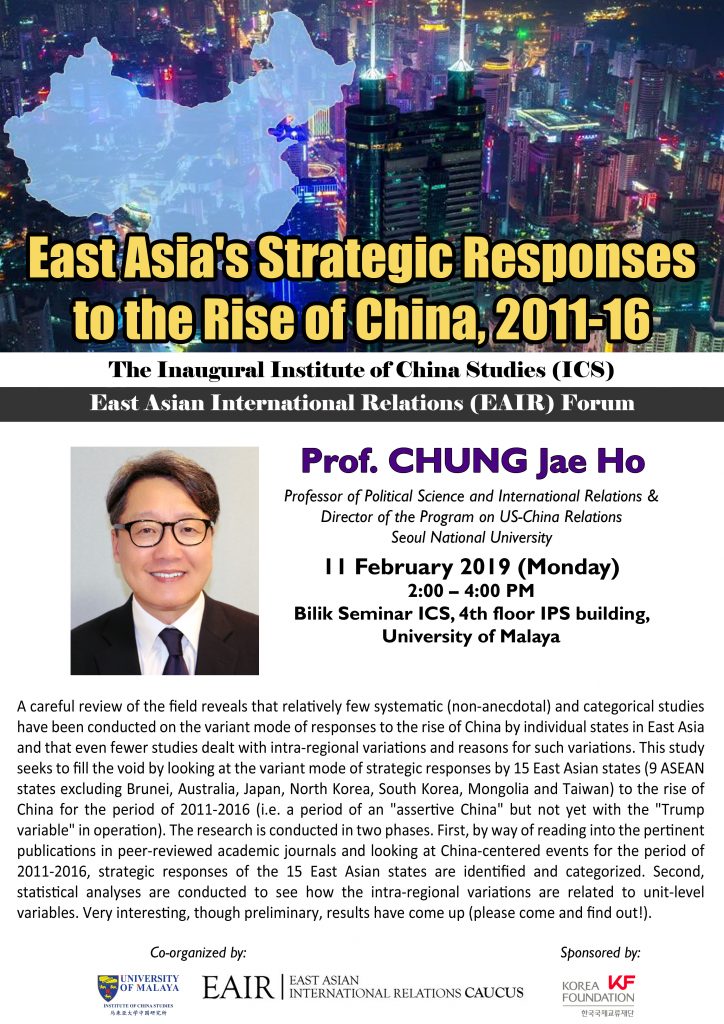
Prof. CHUNG Jae Ho
11 February 2019
A careful review of the field reveals that relatively few systematic (non-anecdotal ) and categorical studies have been conducted on the variant mode of responses to the rise of China by individual states in East Asia and that even fewer studies dealt with intra-regional variations and reasons for such variations. This study seeks to fill the void by looking at the variant mode of strategic responses by 15 East Asian states (9 ASEAN states excluding Brunei Australia, Japan, North Korea, South Korea, Mongolia and Taiwan) to the rise of China for the period of 2011-2016 (i.e. a period of an “assertive China” but not yet with the “Trump variable” in operation). The research is conducted in two phases. First, by way of reading into the pertinent publications in peer-reviewed academic journals and looking at China-centered events for the period of 2011-2016, strategic responses of the 15 East Asian states are identified and categorized. Second, statistical analyses are conducted to see how the intra-regional variations are related to unit-level variables. Very interesting, though preliminary, results have come up (please come and find out!).
About the Speaker: Chung Jae Ho is a professor of international relations and the director of the Program on US-China Relations at Seoul National University, Korea. He is also the Program Chair and the China Program Coordinator of the Seoul Forum for International Affairs. Professor Chung is the author or editor of eighteen books, including Between Ally and Partner: Korea-China Relations and the United States (Columbia University Press, 2007) and Centrifugal Empire (Columbia University Press, 2016). He is the recipient of Seoul National University’s Best Researcher Award in 2009 and of the Korean Association for International Studies’ Best Book Award in 2012.
